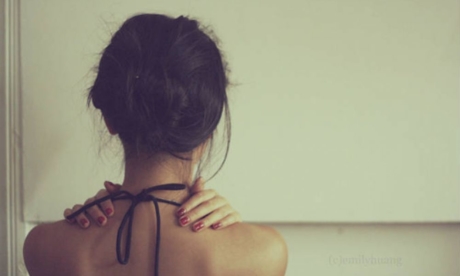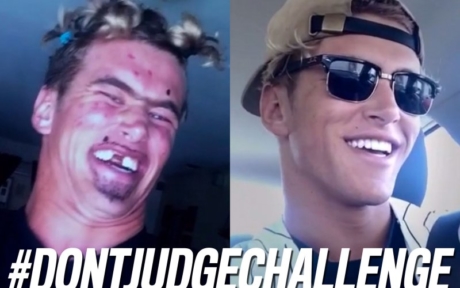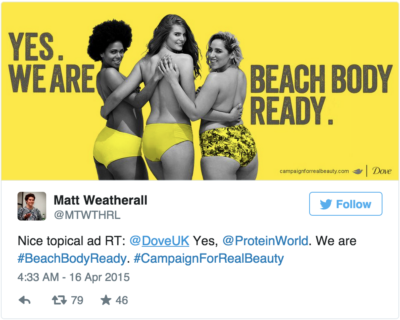 Playboy model and radio host Dani Mathers posted a picture body shaming a naked woman at a Los Angeles gym to her SnapChat account. She captioned the photo with, “If I can’t unsee this then you can’t either.”
Playboy model and radio host Dani Mathers posted a picture body shaming a naked woman at a Los Angeles gym to her SnapChat account. She captioned the photo with, “If I can’t unsee this then you can’t either.”
LA Fitness, the gym Mathers was at, has not only banned her from the gym—but has banned her from LA Fitness gyms for life. She also lost her job c0-hosting a morning show on a local LA radio station. This comes after a long line of body shaming incidents in the past two weeks : Jennifer Aniston has recently fought back from critics after wrongly assuming her pregnant after seeing vacation photos of her in bikini. In an essay on the Huffington Post Aniston said, “I resent being made to feel “less than” because my body is changing and/or I had a burger for lunch and was photographed from a weird angle and therefore deemed one of two things: “pregnant” or “fat.” Not to mention the painful awkwardness that comes with being congratulated by friends, coworkers and strangers alike on one’s fictional pregnancy (often a dozen times in a single day).”
Also from the Hollywood side of body shaming, Rose McGowan wrote a piece in The Hollywood Reporter responding to a male critic’s judgement of Renee Zellwegger’s potential to act after having plastic surgery. In her essay in THR, McGowan uses male celebrities as potential body shaming bait—calling Hollywood beauty standards sexist and unfair:
“To illustrate what women in the public eye go through ad nauseam, I have replaced Renee Zellweger’s name in your article with those of male actors.
The movie’s star, LEONARDO DICAPRIO, already had his “Did he or didn’t he?” moment back in 2014, and I had followed the round-the-world scrutinizing of his image that went along with it, but this was different. Watching the trailer, I didn’t stare at the actor and think: He doesn’t look like LEONARDO DICAPRIO. I thought: He doesn’t look like JAY GATSBY!”
Teenagers have, too, been jumping on the anti-body shaming bandwagon as well with the widely popular #DontJudgeMe hashtag. From ABC:

“… teens are posting thousands of videos with the hashtag, “dontjudgechallenge,” mocking glamour shots by intentionally making themselves look exceptionally unattractive.
The hashtag has been used more than 2 million times in less than two weeks.
“Essentially the idea was, ‘This is not what I really look like, but you judged me,’” Dr. Kavita Ajmere, a child and adolescent psychologist, told ABC News. “I think that’s the awareness that they wanted to create.
The trend started off as a campaign for teens taking a stand against body-shaming, attempting to make themselves appear less attractive by painting on thick unibrows, acne, missing teeth and wearing glasses, then transforming into what they perceive as “beautiful.”
But now the popular hashtag is causing backlash online with thousands criticizing it, saying the videos don’t empower people but rather mock them, doing more harm than good. “Shouldn’t ‘Don’t Judge Me’ mean you shouldn’t care about what someone looks like at all?,” online user Campbell Urrutia asked in a video. “You shouldn’t care about if they’re hot or not.””
Using social media in a positive light brings people together. It goes hand in hand with last week’s post. But NOT to hurt others—only to help. Stand up to body shamers by wearing your heart on your SCREEN. Be proud of who you are and don’t let others tear you down. Remember, being skinny or overweight or curvy or thin or whatever you look like is OKAY, telling someone how they should look is NOT.











